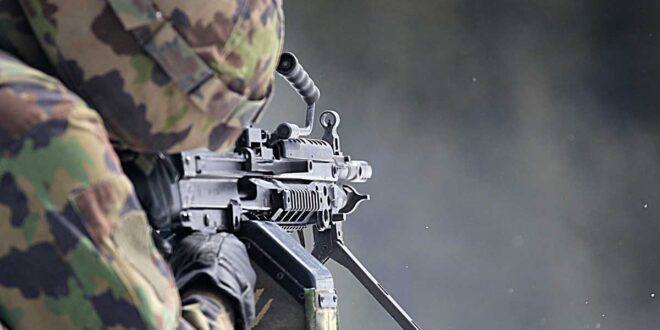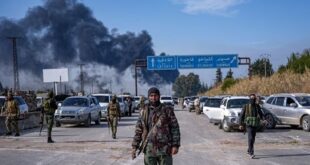He Jun and Chan Kung
The war between Russia and Ukraine has lasted 35 days since it began on February 24. For a long time, Russia has had the image and influence as a great power, which is mainly reflected in its military strength, and in its 2,000 nuclear weapons, as well as its powerful conventional armed forces and combat effectiveness. However, judging from the actual progress of this war, although the Russian army is still on the proactive side of the war as a whole, its actual combat performance is quite different from what the world imagined it to be. To some extent, the Russian army was even “trapped” by the resistance of the Ukrainian army.
An important revelation brought by this war is that the world now sees clearly what are a country’s actual “strategic resources”.
According to a general understanding, “strategic resources” refer to human resources, natural resources, and artificial resources that play an important role in the overall situation of the war. Among them, human resources refer to the quantity and quality of the population with the necessary labor capacity, including the ability to perform military service. Natural resources include land resources, mineral resources, hydraulic resources, biological resources, and marine resources. Artificial resources are substances developed and processed by human beings, including means of production and consumption.
A country’s strategic resource status depends on its geographic location, land mass, population quality, topography, geological structure, as well as whether these resources can be reasonably developed, transported, stored, distributed, and consumed. Strategic resources are the material basis for preparing for and conducting wars. They determine a country’s potential ability to support wars, directly affect the process and outcome of wars, and are an important basis in formulating national and military strategies. When a country determines its strategic intentions, it must be based on the practical limits that strategic resources can provide. If the strategic attempt exceeds the limit of strategic resources, it will inevitably reduce the ability to continue the war and eventually lead to the defeat.
The above understanding is closer to research definition, which is a systematic description of national strategic resources and their roles. Strategic resources in actual warfare would have simpler answer. Looking at the war in Ukraine, researchers at ANBOUND believe that the “strategic resources” that matter to national security the most are energy, food, military, and industrial sectors that can be “weaponized”.
Undoubtedly, the importance of energy is not only the guarantee for the military’s combat operations but also the basic driving force for the economic and social operation of the country during wartime. In the Russia-Ukraine war, the importance of energy is extremely prominent. It is not only an important means for the United States to sanction Russia, but also a crucial weapon for Russia against European countries. For the world’s major energy-demanding countries, in the event of a war, ensuring basic energy security will be an extremely important issue.
Food is also a critical strategic resource in times of national war. Simply put, food is required during war time, not only to feed the army but also for the common people to survive. Widespread food shortages during war may cause more panic than the army losing a battle. Especially if the war continues, the nation’s ability to reserve and obtain food from various markets becomes as important as the ability to obtain weapons and ammunition.
The army is the protagonist and the most important strategic resource during the war. It involves the quantity, quality, combat effectiveness, morale, and cooperation of different branches of the military, and is also tied to a country’s ability to supply and train soldiers. In the Russia-Ukraine War, the size of the Russian Federation army exceeded 1 million (approximately 1.027 million), while the Ukrainian army was only about 200,000. Although the size of the Russian military is five times that of the Ukrainian military, the actual Russian troops that can be put into the Ukrainian battlefield are not more than 200,000. With the stalemate of the war, the number of troops available to Russia has become insufficient, thus troops from Russia’s Far East were also transferred to Ukraine. Russia later adjusted its war goals to focus on the Donbas, which had something to do with the lack of troops.
The weaponizable industrial sector is also an important key to the country’s strategic resources. It can be seen in the Russia-Ukraine war that energy has become an important weapon in the game between Russia and the West. The energy industry sector has also become a crucial strategic resource affecting the war. The industrial sectors that can be weaponized are not only energy. The semiconductor and electronics industry, various military industries, shipbuilding, aerospace, food production, and some mineral resource sectors can be included in national strategies resources as well.
For a long time, to gain the preferential treatment from national policy, “national security” has become ubiquitous label worldwide, where different sectors are claimed to be related to it. However, as soon as the war begins, the actual “national security” sectors will be revealed. Only the strategic resources that have real strategic value, affect the success or failure of wars and are related to national stability during wartime, such as energy, food, army, and industries that can be “weaponized”, are the real foundations of a country’s security.
It should be emphasized that a country’s shortcomings in strategic resources can become a its weakness in wartime. Even in peacetime, it will also become a flaw that may be exploited by others. In old Europe, in the case of France and Germany, their national policies were strongly constrained by Russia because of their energy dependence. Other countries in the world are affected by food shortage, and inflation has even led to the constraints of financial policies in some countries.
We must be soberly aware that any country’s resources are limited, and it is impossible to invest limited resources in too many areas. Therefore, the focus should be on areas that involve national security. This is the basis of a major national policy. From the perspective of China’s economic situation and resources, energy source and agriculture are the national foundations that will affect its national security in the future. These two strategic resource areas are not without incidents. Due to the high degree of external dependence, there are potential risks.
 Geostrategic Media Political Commentary, Analysis, Security, Defense
Geostrategic Media Political Commentary, Analysis, Security, Defense





